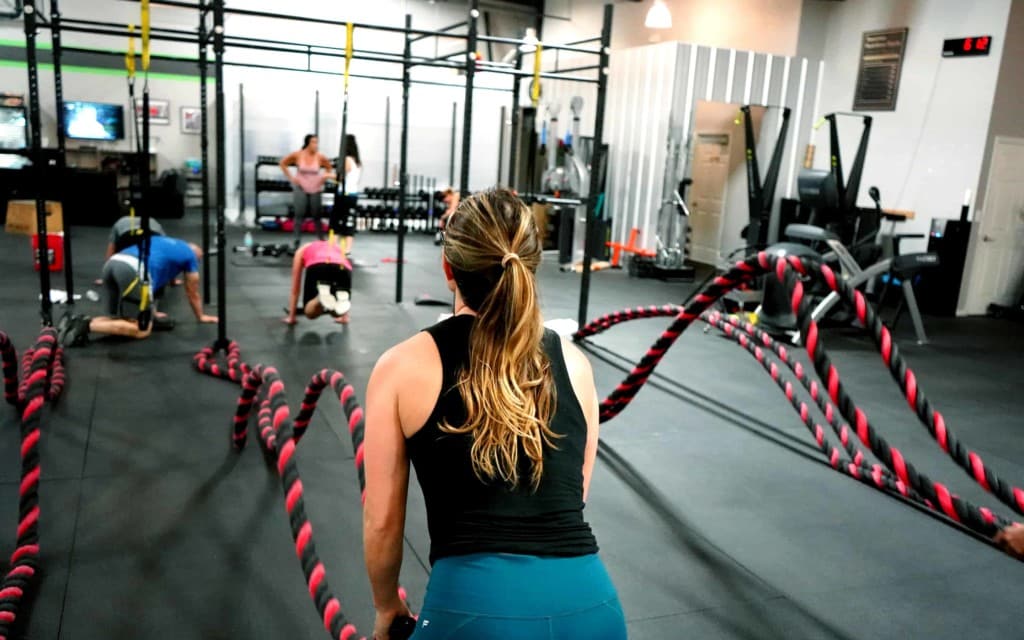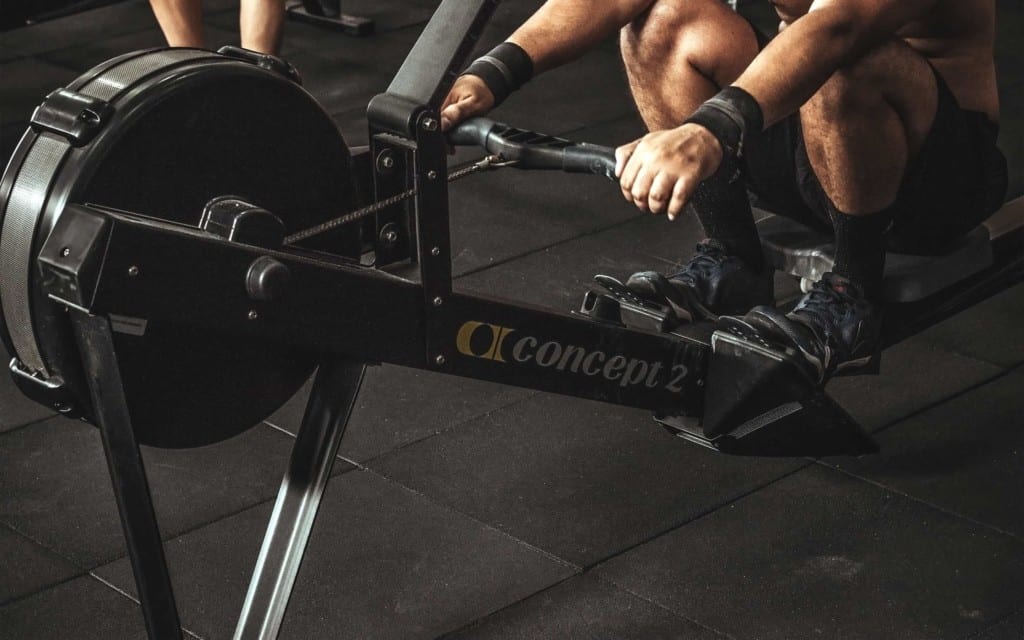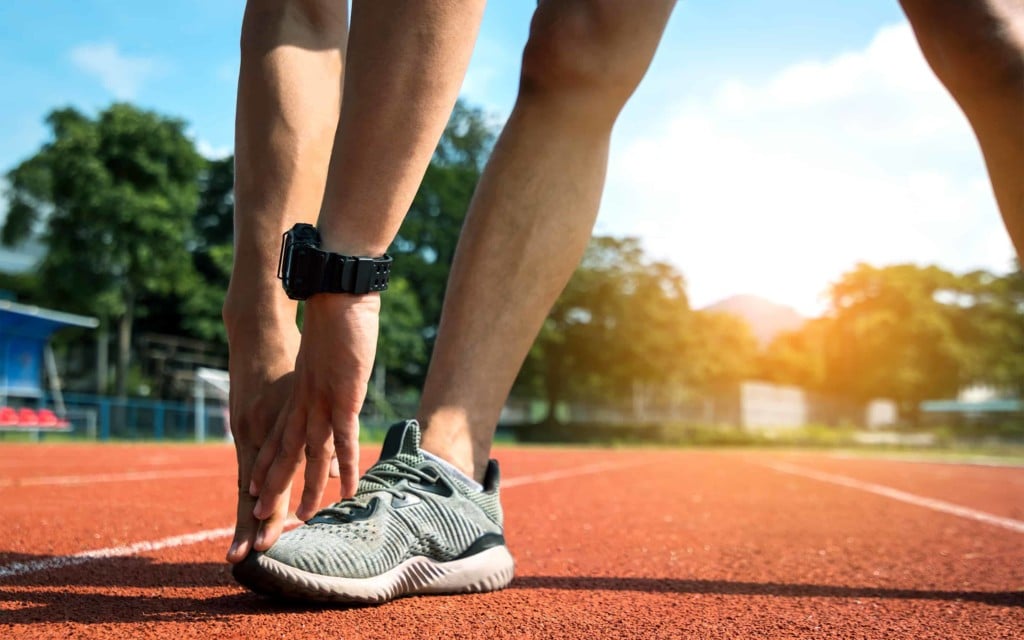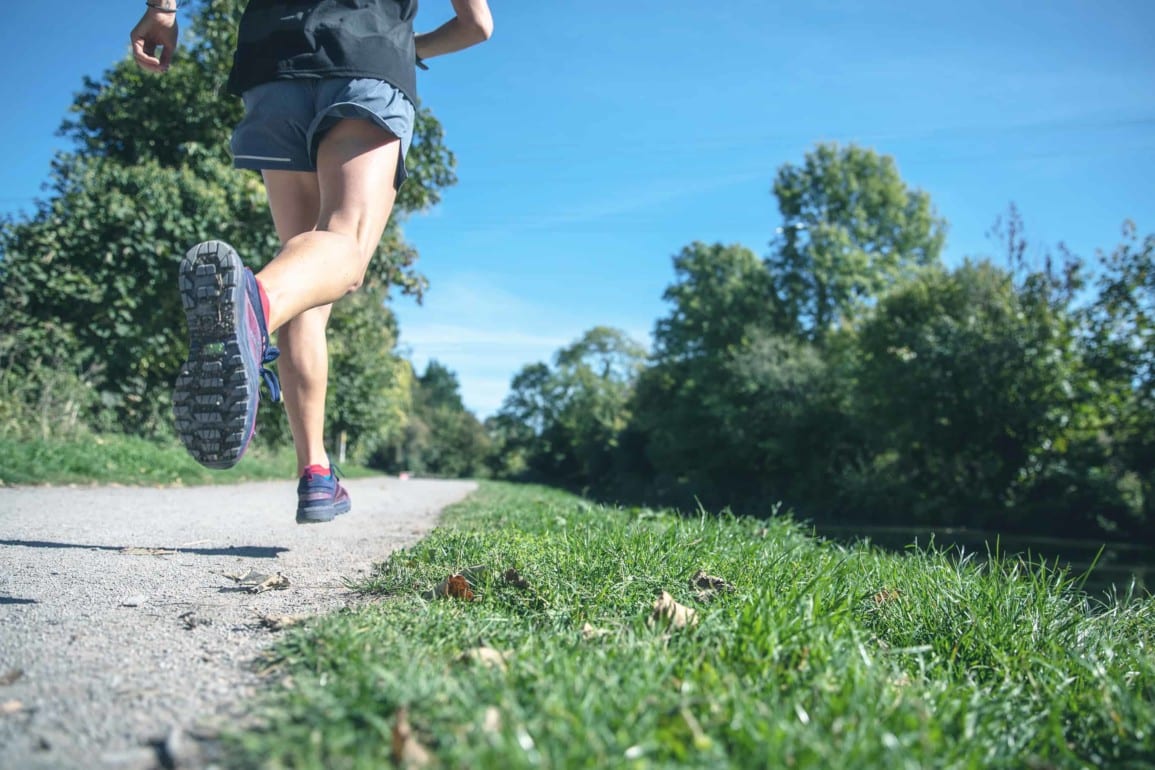Are you one of those many people who struggle to drift off to sleep each night?
Maybe you spend your nights staring at your ceiling, then stumble groggily through the day after, wishing you could go back to your bed.
Perhaps you’ve tried endless potions and elixirs intended to help you sleep better already, from valerian drops to sleepy time teas, and you’re still getting nowhere.
Don’t worry — we might just have the answer.
Exercise!
You already know that exercise is one of the best things that you can do to keep your body and mind healthy. However, most people don’t realise just how much of an impact their workouts have on their nightly slumber sessions.
As the research into sleep continues, we’re beginning to learn that exercise could be the key to helping you drift off quicker. And you’ll stay asleep for longer too.
If you’re sick of endlessly pursuing a good night’s sleep, a new exercise routine could be just the thing you need.
Today, we’re going to explore some of the workout strategies you can try during the day if you want to improve your snoozing potential at night.

The facts: Exercise helps sleep
Need proof that we’re not just tricking you into spending more time at the gym? No problem.
According to a systematic review of the relationship between exercises and better sleep conducted in 2017, researchers found that there’s mounting evidence to suggest that physical activity is crucial to good rest.
Scientists believe that exercise could be one of the most effective intervention options for people who don’t get a sufficient quantity of sleep each night.
The study mentioned above highlights the fact that sleep is physiologically intended to help with regulating hormonal and metabolic processes.
How sleep fully effects our body is still something that we’re not 100% sure of. However, the research tells us that there is a reason to believe that regular activity could be beneficial to your sleeping habits.
Now, here’s where things get tricky.
Exercise can both make you sleepy, and wake you up, depending on when you exercise, and what kind of routine you do.
While it’s true that exercise helps sleep, it can also stop you from drifting off. If you’re engaging in a lot of high-octane cardio-boosting activity in the evening, you might be worse off.
That said, high intensity exercise can tackle stress, reduce anxiety and create a feeling of physical exhaustion, which all help you to fall asleep faster.
So, how do you get the best exercise for insomnia?
The easy answer is to find a routine and a schedule that works for you. Generally speaking relaxing exercises like yoga and pilates might be a great way to unwind at the end of the day. Other more vigorous activities should be ideal regulating your cycle throughout the day.
Let’s take a closer look at how insomnia exercises done during the day can help you at night.

Want to sleep better at night? Sweat more during the day
For many people, the best time to exercise for insomnia will be the first thing in the morning. There are a lot of reasons for this. Researchers often suggest that if you choose to exercise in a morning, you’ll be more likely to stick to your routine.
That’s because you can get your exercise “out of the way” before other things come along to distract you. For the most part, however, studies do show that the best time to exercise is highly individual.
According to one report into the relationship between sport and circadian rhythm, athletes are more likely to stick to training times that appeal to their regular routine.
That means “morning people” are more likely to consistently work out in the morning. So, if you are an early bird, you could achieve some amazing benefits from working out in the morning.
Research suggests that people who exercise early in the day are more likely to finish their full routine. Their willpower is still high and the stress of the day hasn’t accumulated yet.
Additionally, morning exercise can help to set the stage for healthier choices later in the day. A lot of people choose healthier foods when they exercise in the morning. They want to continue their positive work.
If you’re not a morning person, working out in the afternoon could be an ideal way to improve your sleeping patterns. Studies suggest that afternoon sweat session can promote better endurance, greater reaction times, and lower stress levels.
Why morning exercise is amazing
An early morning workout offers a lot of different benefits for today’s sleep-deprived insomniacs. Though it can take a lot of effort to avoid hitting the snooze button on your alarm when it goes off, the results might just be worth it.
Perhaps you’ve been exercising for a while now, to lose weight or get fitter. In this case you might be aware of the phrase “Excess Post-Exercise Oxygen Consumption”.
Basically, this means your body continues to burn more calories after you’ve worked out — even if you’re just sitting at your office desk.
Starting your workout first thing in the day could help you to reach your targets faster(if you want to lose weight). When it comes to exercises for better sleep, movement in the morning and throughout the day can be an excellent source of extra energy and focus.
Research suggests that morning workout routines can improve mental abilities and concentration all day. Not only will you start your day feeling more energetic and awake, but you could also be cognitively well prepared to take on the tasks ahead of you.
If you don’t believe exercise will wake you up in the morning and get you ready for the day ahead, check out this research. Getting up early in the morning for a bout of exercise will help you to wake up, more than a cup of coffee!
Importantly, exercise doesn’t just wake you up in a morning — it can also get your body on track towards a better circadian rhythm. If you’ve ever hit the gym and felt more exhausted when you fell into bed that night, you’ll know that regular exercise causes a healthy sense of fatigue.
One study found that people exercising at 7am were able to achieve the deepest and longest sleep in a study of people working out at different times in the day.

Morning exercises for sleep, and the circadian rhythm
When you’re groggy and exhausted first thing in the morning, the adrenaline that you generate with exercise will help you get through your day with as little pain as possible.
Additionally, exercise gives you a handy boost of serotonin, which helps to support dopamine release, so you can feel happier all day long.
However, exercise for better sleep goes beyond simply waking you up in the morning.
The good hormones that are released during your morning exercise session help to improve your natural rhythm. Your sleep pattern is controlled by a group of genes that ensure certain hormones are high in the morning and low at night.
For instance, you need your cortisol levels (stress hormone) to be high when you wake up and low when you go to sleep.
Giving your cortisol a natural boost with a bit of exercise when you wake up, means that you’re less likely to get the same boost later at night.
If you really want to discover the benefits of exercise for insomnia during the day, it pays to get outside. The light outside from the sun activates the natural triggers in your eyes that tell the brain to wake you up and release melatonin later in the evening.
Getting an extra dose of sunlight in with your morning exercise can even turn night owls into early risers. By completely resetting your body clock.

The best exercises for sleep to do during the day
So, what kind of exercise should you be looking into during the day if you want to sleep better?
Well, it all depends on you. In almost all situations, exercising in the morning sunlight can help you to get a better night’s sleep by resetting your body clock. As well as getting you on the path to a more consistent schedule.
Waking up at the same time each morning to perform your exercise routine will make it more likely that you’ll fall asleep at the same time every night. A consistent schedule is the key to good sleep hygiene.
However, there is some evidence that certain exercises might be more effective during the day for overcoming insomnia. Some workout routines are best reserved for the evenings.
The best exercise you can do early morning or afternoon is moderate to high-intensity cardio. The key is to get your heart racing and blood pumping. Then you can produce that cortisol and adrenaline to reset your body clock.
Research shows that vigorous cardio exercise is best for improving your mood and sleep. Sometimes, you can get the same effects from strength training, but cardio is usually the easiest way to get started, when it comes to exercises for better sleep.
For instance, you could try the following exercises for better sleep:
- Using a rowing machine
- Running on a treadmill
- Going for a jog outside
- Hiking or climbing
- Cycling
- CrossFit
One study found that over time, moderate to high-intensity exercise increased sleep duration for participants, while simultaneously reducing the amount of time taken to fall asleep.
Alternatively, lifting weights and training your muscles doesn’t seem to have the same impact on your blood pressure or cortisol. This means you can work out calmly with heavy weights closer to when you’re ready to go to bed.
You probably won’t see a boost in your cortisol with weights. Strength training before bed could help you to create that important physical fatigue. Hence making you more likely to drop off when your head hits the pillow.

When’s the best time of day for insomnia exercises?
At this point, you’re probably wondering which exercises for better sleep you should do.
After all, exercise can just as easily wake you up as it can help you to fall asleep, depending on the kind of workout that you do.
Any type of exercise could help you to overcome your sleep problems by giving you a way to deal with stress and overcome anxiety.
The key to success for most people is simply finding a routine that works and sticking to it.
Most of the time, you’ll find that scheduling your cardio high-intensity exercises for the first thing in the morning will be the best way to start your day.
You’ll get an important boost of energy this way, and if you exercise outside in the sunlight, you’ll also be able to get a head start on adjusting your body clock.
If you want to work on your strength or relaxation techniques too, then schedule weightlifting and yoga sessions for later in the evening.
Siestio. Sleep Matters.
General advice disclaimer
This article contains general tips and advice. However, no diet or exercise program should be started without consulting your physician or other industry professional first. For more information read our full disclaimer here.








